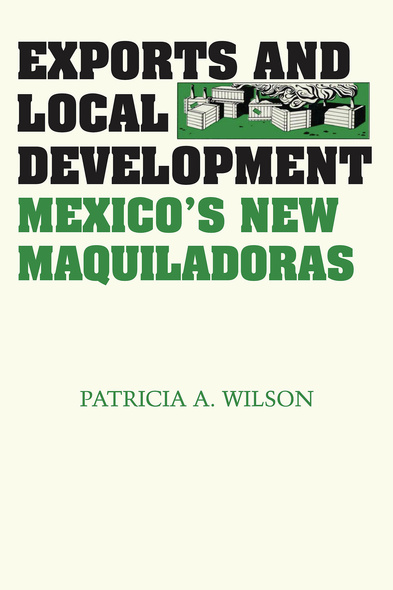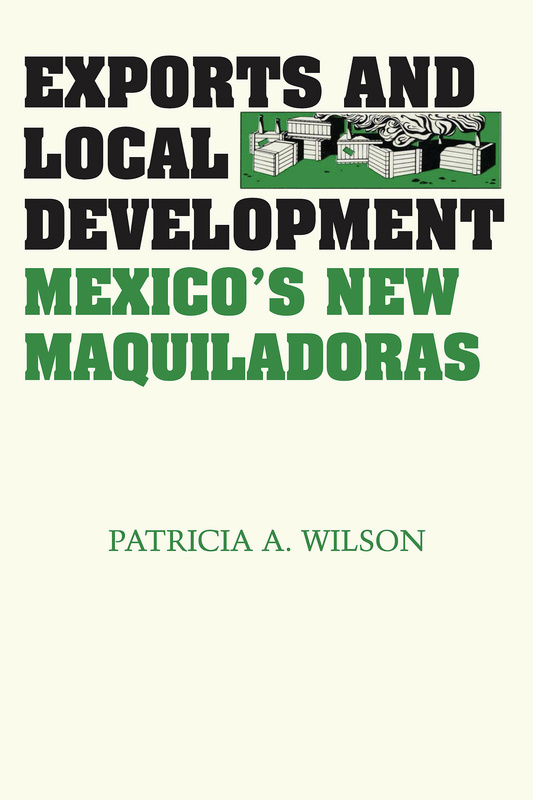Exports and Local Development
Mexico's New Maquiladoras
Mexico's export assembly industry has been the object of an intensely polarized debate. While some observers laud the maquiladora industry as a source of much-needed employment and foreign exchange for Mexico, others berate it as a vehicle for exploitation and pollution. Exports and Local Development attempts to transcend the dichotomy by taking a practical look at how this export industry could be better utilized to promote local development.
Using data gathered from a field survey of more than seventy maquiladora plants, Patricia A. Wilson compares the Mexican industry with its more successful Asian counterparts to determine how policy initiatives might help Mexico use local linkages to tap the potential of both local and foreign-owned assembly plants.
The study grounds its analysis of the maquiladora industry in leading-edge issues including the rise of free trade, changing corporate sourcing strategies, the competitiveness of U.S. manufacturing, the Japanese challenge, the spread of flexible technology and management methods, the impacts of export-led development strategies, the importance of business networking, and the role of small business. It will be of interest to a wide audience in international business, economic development planning, public policy, and economic geography.
- Acknowledgments
- 1. Introduction and Overview
- 2. The Global Assembly Industry: Maquiladoras in International Perspective
- 3. The Rise of the New Maquiladoras
- 4. The Challenge of Flexible Manufacturing
- 5. Maquiladoras and Local Linkages: Transaction Networks in Guadalajara
- 6. From Motorola to Mextron: Case Studies of Individual Business Strategies
- 7. Export-led Development and Local Linkages: The Policy Implications
- Appendixes
- Notes
- Bibliography
- Index





